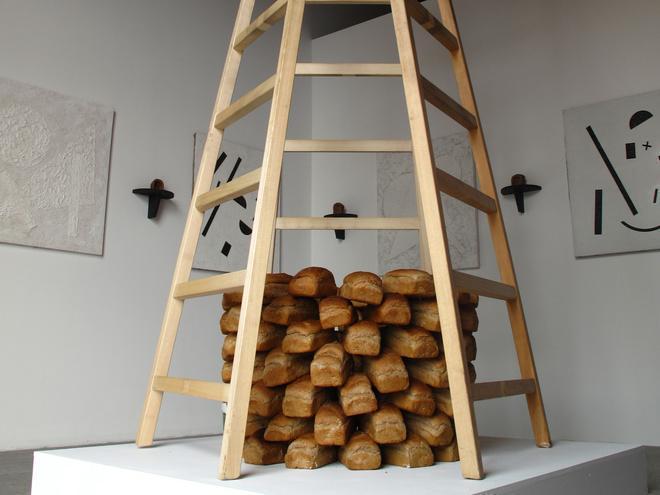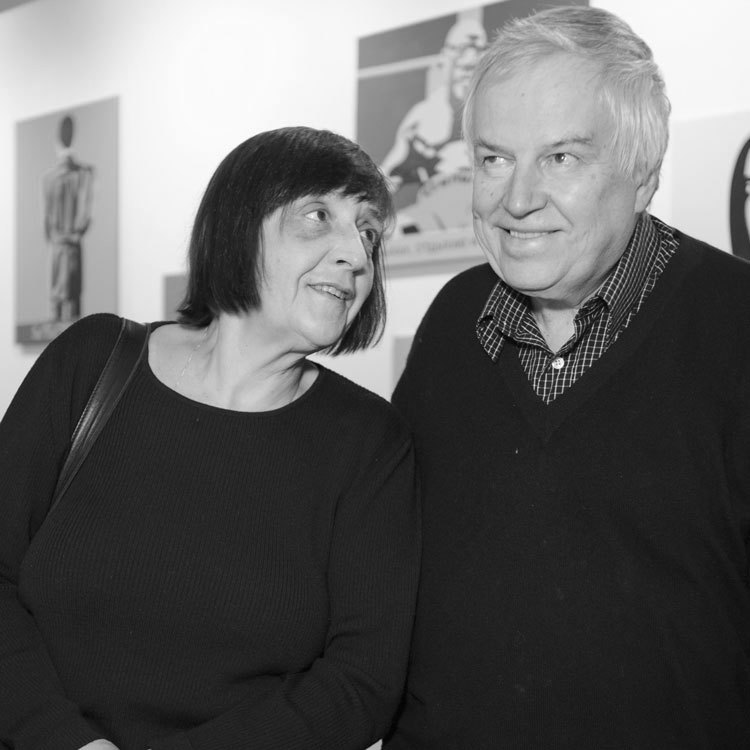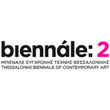
Elena Elagina and Igor Makarevich. Common Cause 3
-
Date(s)
19 September — 01 November 2009
-
Address
Stella Art Foundation
Port, Thessaloniki
About the Project
The building of the Thessaloniki sea port overlooking the sea front hosts an installation Common Cause 3 of maestros of the “Moscow conceptualism”, special guests of the Biennale Elena Elagina and Igor Makarevich, created with the support of Stella Art Foundation.
The artists reproduce a conventional “exhibition” space with suprematistically abstract paintings hanging on the walls. The dominant conceptual and visual feature of the installation is a tower-shaft made of black bread bricks which is compressed with a cone of three inclined wooden ladders directed to the invisible but implied sky.
The project continues the authors’ long exploration of the semantics and visualization of the “Russian idea”, which Igor Makarevich and Elena Elagina associate with the symbols of bread, earth and the utopian quests which are very typical of the Russian avant-garde art and scientists of the “cosmic” school.
The artists gave the following comment on their project: “We borrowed the title Common Cause from the principal work of the Russian philosopher Nikolay Fyodorov Philosophy of the Common Cause. Fyodorov’s teaching greatly influenced Russian philosophers and writers. Suffice it to mention names like Leo Tolstoy, Feodor Dostoyevsky and Vladimir Solovyov. One could even say that Fyodorov’s philosophy gave birth to the idea of the Great Utopia that predetermined the course of historical events in the 20th century. We are primarily interested in the peculiar ideas of the Philosophy of the Common Cause with its mixture of mysticism and rather straightforward materialism. The purpose of our work was to reconstruct Nikolay Fyodorov’s doctrine in its pure form. Tsander, Koleichuk, Chizhevsky and Tsiolkovsky are but a few of his disciples — historical figures whose role is yet to be fully understood. Bread, in its sense of the foundation of the earthly life, played a primary role in the teaching of the Russian cosmism. ’The outer space will give us bread’, Tsiolkovsky insisted.”

